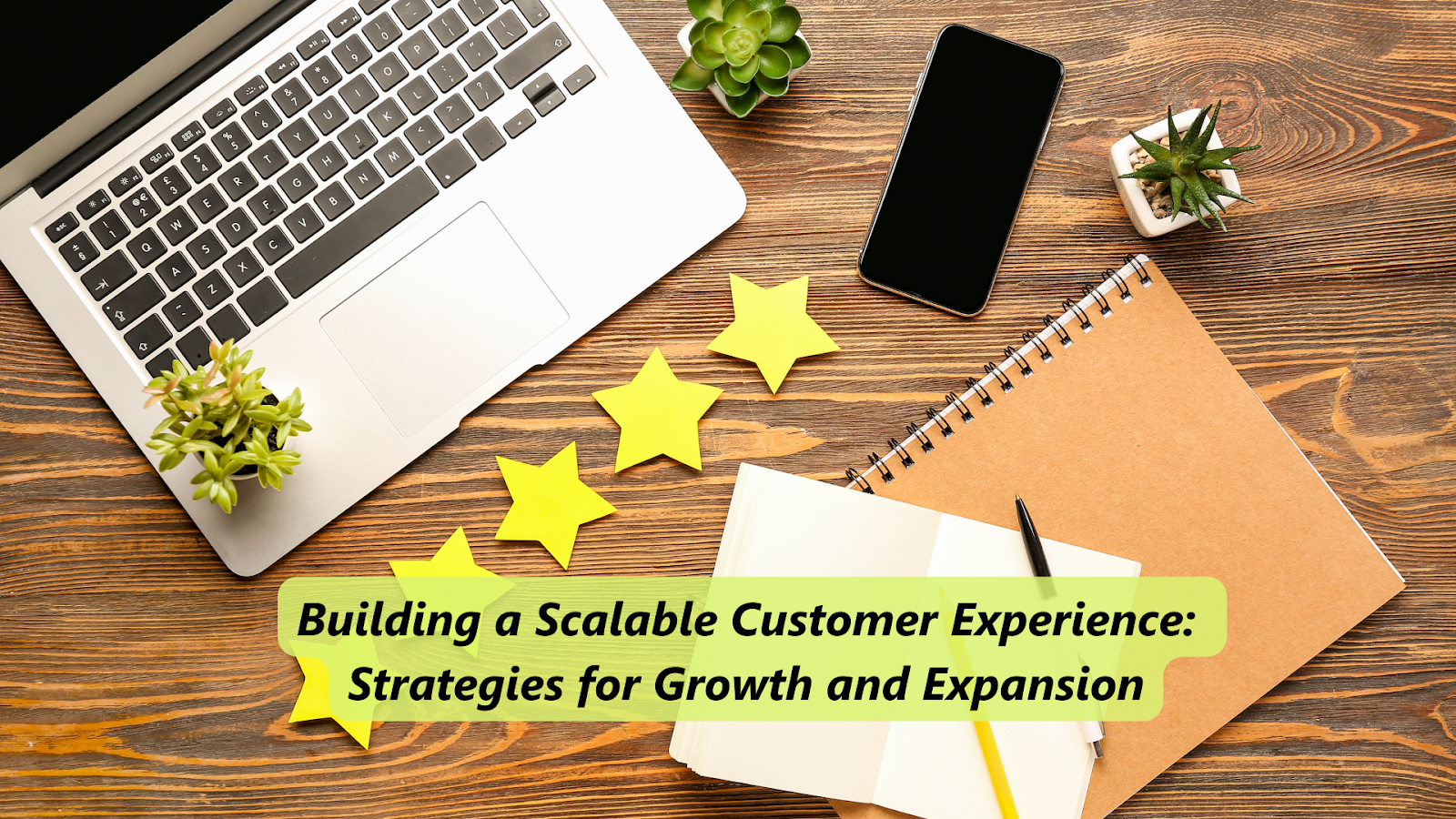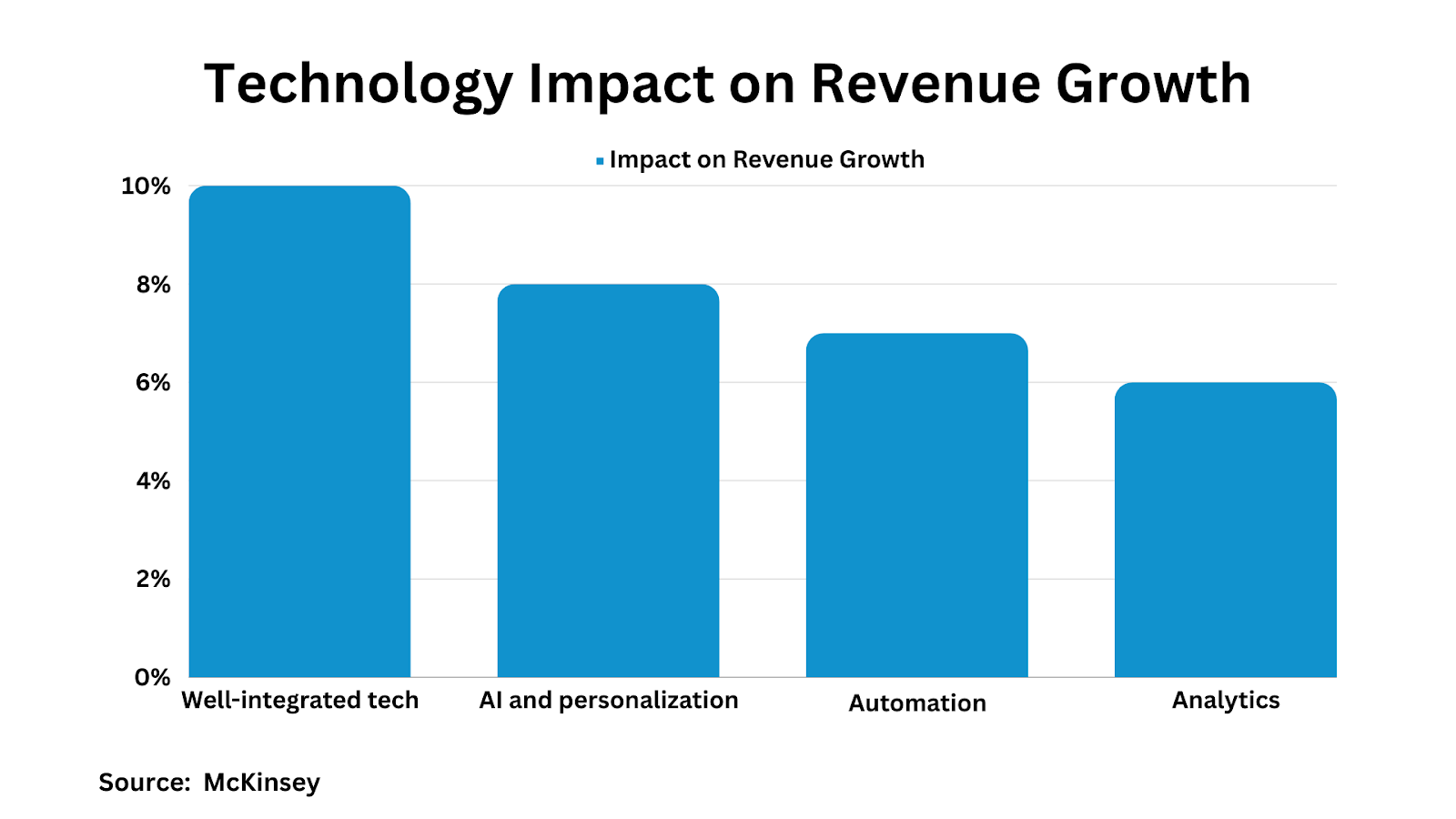Business
Building a Scalable Customer Experience: Strategies for Growth and Expansion

As leaders aiming to grow our businesses, providing exceptional and consistent customer experiences is so important, but gets harder as we rapidly expand. How do we solve that scaling challenge? In this article, we’ll explore practical strategies for growth and expansion. Together we’ll learn tips to scale personalized service frameworks to drive growth through greater loyalty and satisfaction over time. Sounds useful? Let’s get to it then!
Why Scalable CX Matters
Scaling customer experience is critical for sustainable business growth for several compelling reasons. First, it establishes a competitive edge in your industry and cultivates immense customer loyalty to your brand. When you consistently deliver exceptional, tailored experiences as you scale, customers will remain devoted to you over competitors.
Additionally, scalable CX drives an exponential increase in customer satisfaction levels over time. As your company grows, you can elevate satisfaction by doubling down on CX strategies like cx automation to provide consistent and personalized service. Data shows this pays off immensely – according to Forrester, companies engineered for scalable CX achieve a stunning 5.2 times higher year-over-year growth rate compared to industry peers. Amazon’s masterful scalable CX approach has resulted in a 25% expansion of customer satisfaction, underscoring the revenue potential.
The data and examples speak for themselves – a scalable CX framework unlocks immense growth opportunities by retaining customers, multiplying satisfaction, and amplifying competitive differentiation. That is precisely why scaling CX correctly must be an urgent strategic priority.
Defining Scalability in CX
It’s easy to assume scalability just entails handling more customers. But in practice, truly scalable CX requires a much deeper strategy. The key is architecting flexible processes deliberately designed to maintain exceptional service through rapid growth curves without compromising.
The proactive approach focuses on optimizing agile, forward-thinking frameworks able to sustain quality and “wow” moments exponentially. Rather than reacting post-launch, organizations need to invest upfront in customizing robust CX frameworks smooth enough for demand spikes from disruptions. Built right from the start, scalable infrastructure ensures consistency at scale.
Strategies for Scalable CX
1. Personalization at Scale
Personalizing engagements is vital for scalable CX. Research by Epsilon indicates that a staggering 80% of consumers are much more likely to purchase when offered personalized experiences tailored to their preferences and needs.
To achieve this effectively at scale, leverage customer data and technology like AI-powered segmentation and predictive analytics. Identify key customer attributes and behaviors to categorize them into groups. Craft targeted messaging and experiences customized for each segment. Send relevant recommendations and offers based on purchase history. The more granular your segmentation, the more delighted customers feel by interactions that resonate with their needs.
2. Omni Channel Integration
Delivering consistent Omni channel experiences across all touch points is crucial for cohesive scalable CX. Channels like your website, mobile app, brick-and-mortar stores, and contact center must have unified experiences in terms of branding, messaging, promotions, policies, and communication styles.
Research by Salesforce reveals that harmonized Omni channel experiences boost revenue by a substantial 23%. To enable this, tightly integrate data and processes across channels. Provide customers with seamless, smooth journeys as they interact across touch points according to their preferences.
3. Scalable Training
As your business scales rapidly, thorough staff training ensures frontline employees continue delivering outstanding CX aligned to your brand promise. Training must focus on nurturing skills like empathy, active listening, creative problem-solving, and stellar product expertise.
Conduct regular refreshers on new product offerings, brand messaging, and policy/procedural changes. Roleplaying exercises prepare staff for higher-stakes interactions like service recovery. This comprehensive approach keeps CX consistent despite swelling customer volumes.
4. Automation for Efficiency
The McKinsey Global Institute found that intelligent automation of processes improves efficiency substantially by 15-20%. To maximize this benefit, implement chatbots offering 24/7 instant responses to common customer queries.
Automate repetitive and rules-based service tasks across channels. This boosts productivity and allows agents to focus on complex issues requiring human nuance. Overall costs are reduced, enabling the routing of savings into enhancing CX.
5. Data-Driven Decisions
Harness customer data proactively by continuously analyzing feedback, surveys, and purchasing patterns. Identify pain points, preferences, and changing needs. Address gaps with agility through a CWNA approach – Changing With the Needs of Customers and Associates.
Let metrics guide smart decision-making on matters like resource allocation, new offerings, promotions, and channel mix. This data-driven strategic flexibility is the hallmark of scalable CX.
Overcoming Key Challenges
Scaling customer experience comes with critical hurdles that must be addressed head-on. According to Gartner research, a massive 66% of companies attempting to scale CX face constraints on key resources like staffing and technology infrastructure. Maintaining consistency across sudden growth spurts is also hugely challenging. Alarmingly, PwC found that 32% of customers will abandon a brand after just one negative experience amid business expansion.
To overcome these obstacles, organizations must make significant investments in smart technology and automation to handle exponentially larger CX capacity. Regularly gathering granular customer feedback through surveys and social media listening provides actionable insights to course-correct proactively. Most vitally, organizations need to have clear scalability objectives right from the initial CX strategy design stages. This preventative approach ensures your CX vision tangibly accounts for future scaling challenges early on. With the right solutions in place from the outset, companies can smoothly scale CX and accelerate growth.
The Role of Technology
Technology plays an indispensable role as the key enabler for scaling customer experience strategies. As per Statista research, a vast 78% of businesses believe making strategic technology investments is vital for building and sustaining scalable CX capabilities. The Aberdeen Group found that companies with well-integrated CX technology solutions achieve 10% higher revenue growth year-over-year.
Therefore, focus on ensuring seamless integration across channels, platforms, and data sources right from the design phase. Robust integrations multiply the impact. Also, leverage bleeding-edge AI-powered tools for data-driven personalization and intelligent automation of processes. With the right tech approach, your CX can scale profitably.
Final Thoughts
CX scalability relies on embedding adaptability into engagement models, mapping how service needs mature in parallel with business expansion. Executing well requires dedicating resources to know users more intimately and designing touch points resonating with their priorities across scenarios. It also necessitates constructing sturdy operational infrastructure and workflows resilient to volatility behind the scenes.
Equally vital is future-proofing communication practices as representatives multiply, avoiding fragmentation despite growth. When new opportunities emerge, customer-centricity guides marketing optimizations that broaden access without straining quality commitments. Ultimately scalability and care arise from strategy and system designed for evolution.
Frequently Asked Questions
How does personalization impact loyalty?
Personalized experiences make each customer feel valued as an individual, sparking higher satisfaction and loyalty to your brand. Research shows that 80% of consumers are far more likely to purchase when engaged through personalized interactions tailored to their preferences.
What is the role of automation?
Implementing intelligent automation improves efficiency substantially by 15-20%. This technological capability frees up valuable staff resources to instead focus on customer-centric innovation and priority interactions that require human nuance.
How can we ensure data security?
Strict access controls, robust data encryption, and transparent privacy policies are essential to safeguard customer data during CX expansion. Proactively building trust by prioritizing privacy protection measures will provide customers with assurance that their data is handled securely at scale.
-
Blog1 year ago
MyCSULB: Login to CSULB Student and Employee Portal – MyCSULB 2023
-
Android App3 years ago
Cqatest App What is It
-
Android1 year ago
What Is content://com.android.browser.home/ All About in 2023? Set Up content com android browser home
-
Software2 years ago
A Guide For Better Cybersecurity & Data Protection For Your Devices
-
Latest News2 years ago
Soap2day Similar Sites And Alternatives To Watch Free Movies
-
Android2 years ago
What is OMACP And How To Remove It? Easy Guide OMACP 2022
-
Android3 years ago
What is org.codeaurora.snapcam?
-
Business2 years ago
Know Your Business (KYB) Process – Critical Component For Partnerships






















